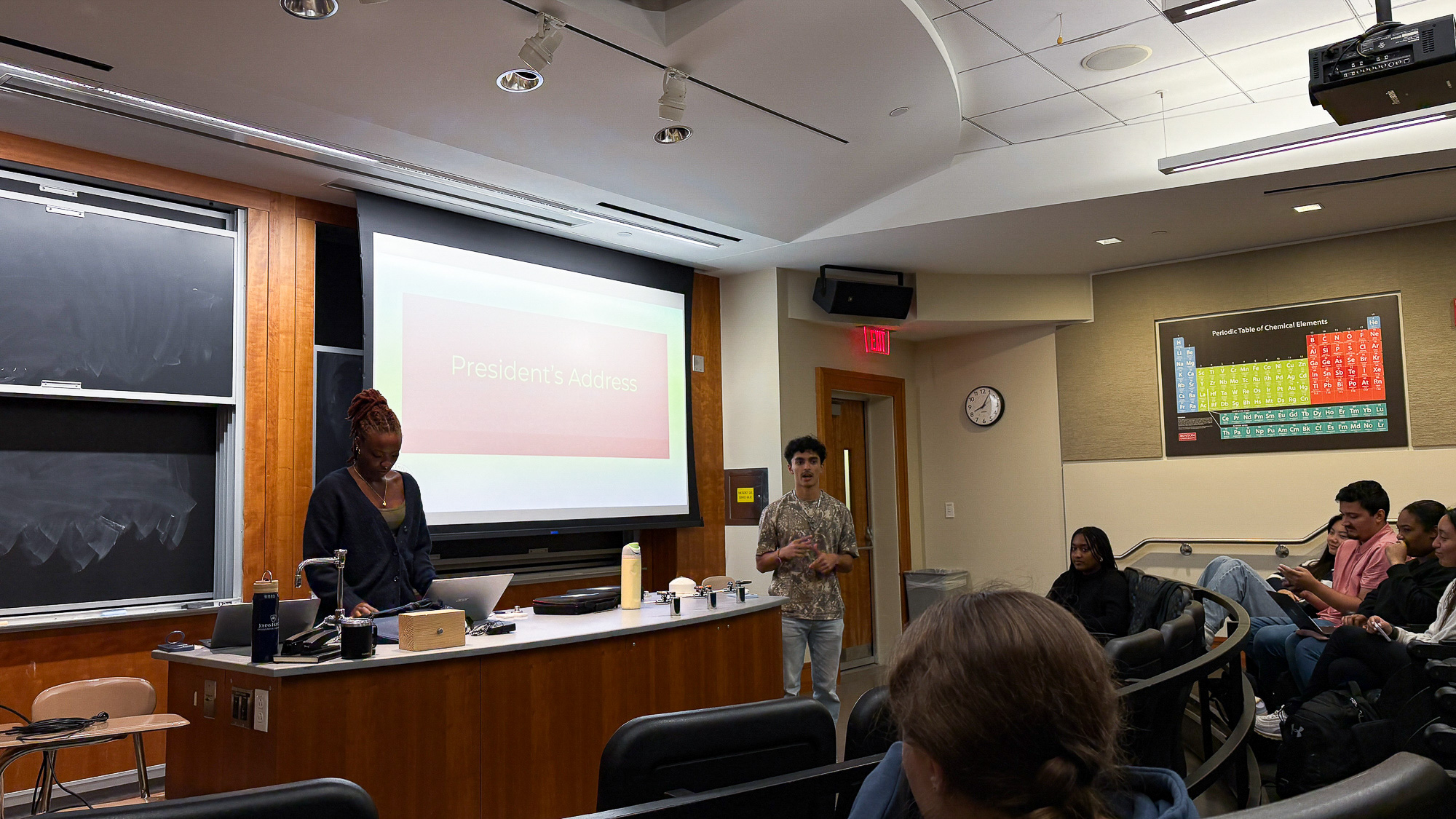Boston University Student Government passed an endorsement for the Black Pre-Law Society, announced upcoming events and semester goals and received an address from the College of General Studies’ dean at their meeting Monday night.

CGS Dean Natalie McKnight reflected on her time at the university in light of her upcoming retirement at the end of this academic school year after working for BU the last 35 years.
She noted the university’s increasingly academically competitive atmosphere, particularly within CGS, and stressed the need for paid undergraduate research and professional internships. McKnight said she also intends to expand cooperation with the city of Boston.
“We want to be seen as Boston’s University, not just Boston University,” she said. “We are engaged in the city of Boston as part of our coursework, as part of our research, as part of our volunteerism.”
She plans to return to BU in the future for a year to teach an experimental course on global philosophic perspectives using her lifelong research in world religions.
StuGov President Matthew Feliciano promoted upcoming events, which included “Walk a Mile in Her Shoes” Oct. 25. This event is dedicated to bringing awareness about sexual violence and invites men to walk down Commonwealth Avenue wearing a pair of high heels.
StuGov announced the upcoming events like Fall Fest this week, Halloween events and Winter Weeks of Welcome and the Spring Fest, which are in the planning processes.
The Senate cabinet disclosed a “Community Service Splash” to be held in November for different community service and volunteering organizations on campus and across Boston to recruit students.
Vice President Tony Wu spoke about revamping transparency efforts within the organization and said StuGov will be spearheading the Open Access Program to encourage BU students to listen to and participate in cabinet meetings.
“We’re going to see a lot of senators do more project outreach, and along with that, do more practical advocacy,” Wu said.
The Senate board discussed the rebranding of its social media presence in the hopes of humanizing themselves to the student body.
It is also focusing on providing increased methods of support for historically disenfranchised communities, including LGBTQ+, BIPOC and low-income first generation students.
A representative from the Food, Equality, Accountability, Sustainability and Transparency Senate committee said it is planning a gut health week initiative to draw more attention to sustainable food options and plant based health care for students.
FEAST is also initiating a program that will include sustainability awareness panels and station takeovers in the dining hall to promote fresh, quality food.
The Senate Awards Committee hopes to create a “Club of the Year” award at the end of each academic year in an effort to boost community engagement. The club that wins will be awarded $500.
The meeting also addressed funding changes.
Vice President of Finance Hanna Yilma said because the Senate can no longer directly allocate funds, it should work to find new ways to provide more funding for student organizations.
Yilma said StuGov will increase transparency by talking about funding changes rather than “putting a bandaid” over the problem.
“We should all be here because no matter what, even when our university is experiencing funding cuts, even when our federal government is oppressing all of our students, we still want to go and find avenues to ease that burden off of our students,” Yilma said.
BPLS prepared a slide about helping Black students interested in legal careers through mentorship, LSAT prep, networking and professional development and appealed for a StuGov endorsement, which the council approved.
Senate Chair Sean Sutton said going forward, it is important for StuGov to build trust and with the student body.
“It’s very hard to convey how little and how much we do for the student body,” Sutton said. “We can still put things on campus. It doesn’t have to just end with we hand you money. We can work together with the money we have.”
Feliciano said he hopes StuGov can continue to engage the student body in the future.
“The idea is that with the continuing transformative change we’ve had in student government, we’re going from less of an internal organization that operates here behind the scenes, and we’re trying to become more student-facing,” he said.
























































































































